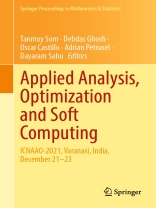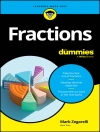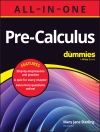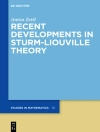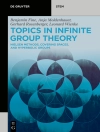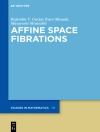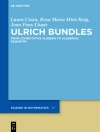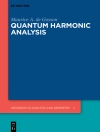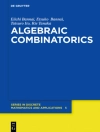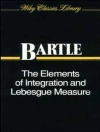This book contains select contributions presented at the International Conference on Nonlinear Applied Analysis and Optimization (ICNAAO-2021), held at the Department of Mathematics Sciences, Indian Institute of Technology (BHU) Varanasi, India, from 21–23 December 2021. The book discusses topics in the areas of nonlinear analysis, fixed point theory, dynamical systems, optimization, fractals, applications to differential/integral equations, signal and image processing, and soft computing, and exposes the young talents with the newer dimensions in these areas with their practical approaches and to tackle the real-life problems in engineering, medical and social sciences. Scientists from the U.S.A., Austria, France, Mexico, Romania, and India have contributed their research. All the submissions are peer reviewed by experts in their fields.
Tabla de materias
Applied Analysis: M. Moga and A. Petruse, Large contractions and surjectivity in Banach spaces.- V. Tiwari, Binayak S., Tanmoy Som, On Hick’s contraction using a control function.- S. Binayak, N. Metiya, S. Kundu, P. Maity, Coupled fixed points for multivalued Feng Liu type contractions with application to nonlinear integral equation.- R. Kumar, A. Kumar Nain, M. Kumar, On Unique Positive Solution of Hadamard Fractional Differential Equation Involving p Laplacian.- M. Pandey, T. Som, S. Verma, Dimensional Analysis of Mixed Riemann Liouville Fractional Integral of Vector Valued Functions.- T.M.C. Priyanka, A. Gowrisankar, Fractional operator associated with the fractal integral of A-fractal function.- Differential and Integral Equations: S. Chentout, A. Benmezai and W. Esserhan, Eigenvalue criteria for existence and nonexistence of positive solutions for αorder fractional differential equations, (2 < α ≤ 3), with integral condition , on the halfline.- B. Hussain and A. Afroz, A Collocation Method for Solving Proportional Delay Riccati Differential Equations of Fractional Order.- Rahul and N. Kumar Mahato, On the Solution of Generalized Proportional Hadamard Fractional Integral Equations.- S. Ghosh and M. Banerjee, A multi-strain model for COVID-19.- S. Samaddar, M. Dhar and P. Bhattacharya, Effect of Nonlinear Prey Refuge on Predator-Prey Dynamics.- Dr R. Tiwari, Effects of magnetic field and thermal conductivity variance on thermal excitation developed by laser pulses and thermal shock.- C. Bhuma, Parkinson Disease Detection from spirals and wave drawings using Sequential Model Selection.- Fractal Theory: P. Massopust, Clifford-Valued Fractal Interpolation.- M. Verma, A. Priyadarshi, S. Verma, Fractal dimension for a class of complexvalued fractal interpolation functions.- M. K Roychowdhury, Optimal quantizers for nonuniform distributions on Sierpi/’nski carpets.- V. Agrawal and T. Som, A note on complex-valued fractal functions on the Sierpinski Gasket.- Fuzzy Set Theory and Soft Computing: Salsabeela V and Sunil Jacob John, A Similarity Measure of Picture Fuzzy Soft Sets and its Application.- A. Kumari Prasad, Soft Almost s-Regularity and Soft Almost s Normality.- Fathima Perveen P A and Sunil Jacob John, Algebraic Properties of Spherical Fuzzy Sets.- T M Athira and Sunil Jacob John, Divergence Measures of Pythagorean Fuzzy Soft Sets.- Anitha K, Fuzzy-Rough Optimization Technique for Breast Cancer Classification.- Optimization: J. Dutta, An Invitation to Optimality Conditions through Non-smooth Analysis.- J. Jauny, D. Ghosh and A. Upadhayay, Multi-objective Environmentallly Friendly and Economically Feasible Electric Power Distribution Problem with Primal-Dual Interior-Point Method.- A. Singh and S. Prasad Yadav, Performance evaluation of DMUs using hybrid fuzzy multi-objective data envelopment analysis.- V. Laha and L. Pandey, On mathematical programs with equilibrium constraints under data uncertainty.- S. Ganguly, P. Das, Pricing policy with the effect of fairness concern, imprecise greenness and prices in imprecise market for a dual channel.- A. Sonkariya and S. P. Yadav, The best state based development of fuzzy DEA model.- D. Datta, Optimization Methods using Music Inspired Algorithm and its Comparison with Nature Inspired Algorithm.- A. Choudhary and S. Prasad Yadav, A new approach to solve intuitionistic fuzzy transportation problem.- M. Yadav and S. P. Yadav, Development of Intuitionistic fuzzy data envelopment analysis model based on interval data envelopment analysis model.
Sobre el autor
TANMOY SOM is Professor and former Head of the Department of Mathematical Sciences, Indian Institute of Technology (Banaras Hindu University), Varanasi, India. He completed his Ph D from Institute of Technology, Banaras Hindu University, India, in 1986. He also has served as the Head of the Department of Mathematics at Assam Central University, Silchar. His research interests are in functional analysis, optimization and mathematical modelling, fuzzy set theory, soft computing and image processing. He has successfully guided more than 16 Ph D students and published more than 100 papers and several book chapters in reputed national and international journals, proceedings and edited books. He has has authored several papers on metric fixed point theory, optimization modelling and recently on applied analysis, soft computing and fuzzy geometry.He has completed a BRNS-BARC funded project titled “Fractional calculus approached solutions for two-dimensional ground water contaminations in unsaturated media” during 2014-18 jointly with Prof. S. Das of IIT (BHU). He is an editorial board member and reviewer of a few reputed journals including
IEEE Transactions, American Mathematical Society, one of the volume editors of the book
Mathematics and Computing:
ICMC 2018, Varanasi, India, January 9–11
(Springer 2018). He has been Guest/Handling Editor of the
International
Journal of Forensic and Community Medicine. He has delivered several invited talks at national and international conferences, seminars, refresher courses, etc., and has organized three international events as organizing chair. He is the Vice-President of Calcutta Mathematical Society—one of the oldest mathematical societies in India. He has made short academic visits to Texas A&M University, Kingsville (2012), and the University of California, Berkeley (2016).
DEBDAS GHOSH is Assistant Professor at the Department of Mathematical Sciences, Indian Institute of Technology (BHU) Varanasi, India. He earned his Ph D degree in mathematics from the Indian Institute of Technology (IIT) Kharagpur. He has completed his M.Sc. from the IIT Kharagpur in 2009 and B.Sc. from Ramkrishna Mission Vidyamandira, Belur Math, University of Calcutta, Kolkata, India. He is a recipient of the Professor J. C. Bose Memorial Gold Medal from the IIT Kharagpur (2009). Dr Ghosh has been awarded the Outstanding Potential for Excellence in Research and Academics Award (2014) from BITS-Pilani (Hyderabad Campus), where he worked as Assistant Professor of mathematics, from June 2014–June 2016.
His broad research interest includes optimization theory, fuzzy geometry, computational multiobjective optimization, and robust optimization. With more than 40 papers and 12 conference papers, he has published five papers on fuzzy geometrical ideas on plane and space. He has authored/edited several books:
An Introduction to Analytical Fuzzy Plane Geometry,
Mathematics and Computing (Springer), and
A Primer on Interval Optimization (all
with Springer). Dr. Ghosh has completed a research project entitled “On Characterizing and Obtaining the Complete Efficient Solution Set of an Interval Optimization Problem under a D-Dominance and a Variable Dominance Structure”, funded by Science and Engineering Research Board, India. He is now handling a research project entitled “On Developing Polynomial-time Interior-Point Methods for Robust Multiobjective Convex Optimization Problems”, funded by Science and Engineering Research Board, India.
OSCAR CASTILLO is Professor of Computer Science at the Graduate Division, Tijuana Institute of Technology, Tijuana, Mexico. In addition, he is serving as Research Director of Computer Science and head of the research group on Hybrid Fuzzy Intelligent Systems. Currently, he is President of Hispanic American Fuzzy Systems Association (HAFSA) and Past President of International Fuzzy Systems Association (IFSA). He holds the Doctor in Science degree (Doctor Habilitatus) in Computer Science from the Polish Academy of Sciences (with the dissertation “Soft Computing and Fractal Theory for Intelligent Manufacturing”). Prof. Castillo is also Chair of the Mexican Chapter of the Computational Intelligence Society (IEEE). He also belongs to the Technical Committee on Fuzzy Systems of IEEE and to the Task Force on “Extensions to Type-1 Fuzzy Systems”. He is Member of NAFIPS, IFSA and IEEE. He belongs to the Mexican Research System (SNI Level 3).
His research interests are in type-2 fuzzy logic, fuzzy control, neuro-fuzzy and genetic-fuzzy hybrid approaches. He has published over 300 papers in several journal, authored 10 books, edited 50 books, more than 300 papers in conference proceedings, and more than 300 chapters in edited books; in total more than 1000 publications according to Scopus (H index = 66), and more than 1200 publications according to Google Scholar (H index = 80). He has been Guest Editor of several successful special issues of the following journals:
Applied Soft Computing,
Intelligent Systems,
Information
Sciences,
Non-Linear Studies,
Fuzzy Sets and Systems,
JAMRIS, and
Engineering Letters. He is currently Associate Editor of the
Information Sciences Journal,
Engineering Applications of Artificial
Intelligence
Journal,
Complex and Intelligent Systems Journal,
Granular Computing Journal, and the
International Journal on Fuzzy Systems. Finally, he has been elected IFSA Fellow in 2015 and MICAI Fellow member in 2017. He has been recognized as Highly Cited Researcher in 2017 and 2018 by Clarivate Analytics because of having multiple highly cited papers in the Web of Science.
ADRIAN PETRUŞEL is Professor at the Department of Mathematics, Babeş-Bolyai University Cluj-Napoca, Romania (since 2003). He has alsobeen Visiting Researcher at the University of Seville, Spain (2004); Visiting Professor/Researcher at National Sun Yat-sen University Kaohsiung, Taiwan (2007, 2016–2019); and Visiting Professor at King Saud University, Riyadh, Saudi Arabia (2015–2016). He earned his Ph D degree from Babeş-Bolyai University Cluj-Napoca, Romania (1994). His areas of research include fixed point theory, differential equations, and multivalued analysis. He is an author of six books and more than 200 research papers in reputed journals, which have over 2500 citations and H-index 23, according to the Web of Science. He has received the “Babes-Bolyai” University Prize in 2002 for his books:
Fixed Point Theory (1950–2000): Romanian Contributions and recently awarded distinction “Bologna Professor”- AOSR, 2021. He is an invited researcher in Sevilla University, Spain (2003); Valencia University, Spain (2004); Chiang Mai University, Chiang Mai, Thailand; and King Mongkut’s University of Technology Thonburi, Bangkok, Thailand (2012) and National Sun Yat-sen University, Kaohsiung, Taiwan (2015-19). His has been expert member of The International Research Grants body in Taiwan (2015-19).
He is the Editor-in-Chief of the following journals: Fixed Point Theory, Fixed Point Theory and Algorithms for Science and Engineering, and Studia Univ. Babeş-Bolyai Mathematica. Moreover, he is on the editorial board of the journals: Studia Universitatis Babes-Bolyai, Mathematica, FILOMAT, Miskolc Math. Notes, Applicable Analysis, and Discrete Mathematics, Discrete Dynamics in Nature and Society; Linear and Nonlinear Analysis, The Journal of Nonlinear Sciences and its Applications; Applied Analysis and Optimization; Journal of Nonlinear and Variational Analysis; Mathematical Analysis and Convex Optimization; Journal of Nonlinear Analysis and Optimization: Theory and Applications; International Journal of Mathematical Sciences; and Mathematica (Cluj).
D.R. SAHU is Senior Professor at the Department of Mathematics, Institute of Science, Banaras Hindu University, Varanasi, India. Earlier, he was Associate Professor and the Head of the Department of Applied Mathematics, Shri Shankaracharya College of Engineering and Technology, Junwani, Bhilai, India. He completed his Ph D degree from Ravishankar Shukla University, Raipur, India, in 1996. He has 25 years of teaching at undergraduate and graduate levels and research. His research interests include fixed point theory, computational operator theory, variational inequality theory, computational convex optimization, Newton-like methods, and image processing. He has supervised nine research scholars for their Ph D degree, and other six students are pursuing their Ph D. He is on the editorial board of several international journals including
Fixed Point Theory,
Fixed Point Theory and Algorithms for Science and Engineering, and
Journal of Applied and Numerical Optimization. He also is the reviewer of many reputed journals. He has authored one book and published more than 140 research papers (over 2833 citations, H-index 22; to date). He has completed two SERC Fast Track projects as Principal Investigator. He has delivered several invited talks at several international conferences: some of them are ICFPTA-2012 in Taiwan (2012), ICFPTA-2019 in China (July 2019), and ICTP-2002 in Italy. He has visited for academic works to IISc Bangalore (2002), India; South Korea (2008), Taiwan (2018); Romania (2018); Guru Ghasidas University, Chhatisgarh, India (2018); and Jamia Millia Islamia, New Delhi (2019).
